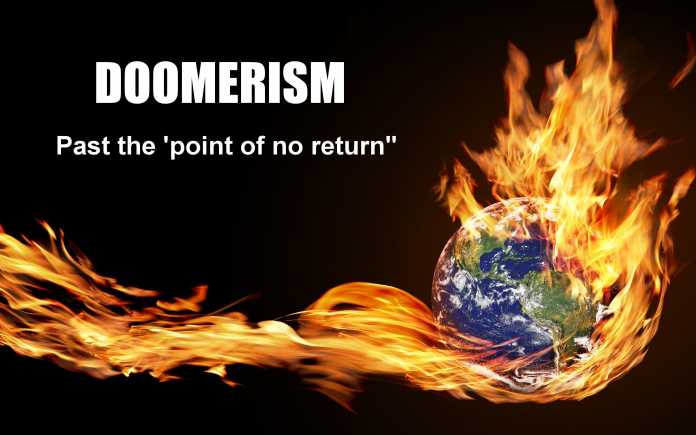A recent editorial in The Spectator claims that alarmist messaging like warnings of impending doom by climate activists and the United Nations are hyperbolic and even harmful. This is true. Data show that there is no catastrophe in store for humanity due to climate change, and studies show alarmist messaging is counterproductive and harms the mental health of people who take it to heart.
The article, “The irresponsibility of ‘two years to save the planet’” written by Ross Clark, describes the hyperbolic language used by climate alarmists, such as the concept of a climate crisis or giving humanity a countdown to disaster, and how it is counterproductive or even harmful. This discussion follows the recent claims made by the executive secretary of the United Nations Framework Convention on Climate Change, in which he stated that there are only two years left to save the planet.
Clark points out that these “only a few years left” warnings have been made repeatedly, and “[b]y my maths that means we became doomed a dozen years ago, so I was resigned to sitting back and waiting calmly for the end, like the elderly couple who sat in deckchairs on the Titanic holding hands as the ship went down.”
Humor aside, Clark’s perspective is shared by many, and not only among those who are skeptical of the climate crisis narrative. Climate Realism covered a trend last year in media outlets admitting that the catastrophe narrative was becoming counterproductive even to their would-be supporters, as climate “doomers” began to believe that it was already too late to do anything about climate change, so why bother.
WaPo stated at the time “some scientists and experts worry that their defeatism — which could undermine efforts to take action — may be just as dangerous as climate denial.”
Climate Realism previously discussed another one of Clark’s articles, where he pointed out that “if you believe that human societies are doomed anyway — as 56 per cent of young people apparently do — what is the incentive to cut emissions?”
Besides the general non-issue of climate apathy, however, there is one troubling result of catastrophizing, and that is the state of mental health among younger people. Clark talks about a 2021 study which asked students at the University of Bath between the ages of 16 and 25 questions about climate change, which found “45 per cent of people in this age group were so worried about climate change that it was affecting their day-to-day life, while 56 per cent said that they thought humanity was doomed and 40 per cent said they were hesitant to have children because they would be bringing them up in an uninhabitable world.”
He goes on to say that “[n]o reasoned interpretation of the evidence would say that humanity is doomed by a changing climate,” which is absolutely true. Weather is not becoming more extreme, the planet is greening and crop production is growing, and issues like sea level rise are occurring at a very manageable rate.
Climate Realism has likewise addressed the fact that many peoples’ mental health are being impaired by the media’s coverage of climate change, here, here, and here, for example. The media and alarmists spin catastrophic narratives that real world data debunk, but, unfortunately a lot of people believe the hype and don’t check or follow the science.
It is always beneficial when media outlets, like The Spectator, run op-eds which provide much needed balance to the discussion. In the face of the copious evidence that no climate crisis is in the offing, it is unreasonable to be terrified or deeply distressed by climate change. It takes efforts like Clark’s to inoculate people against catastrophism with the truth.



















